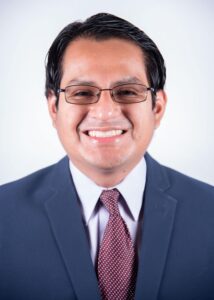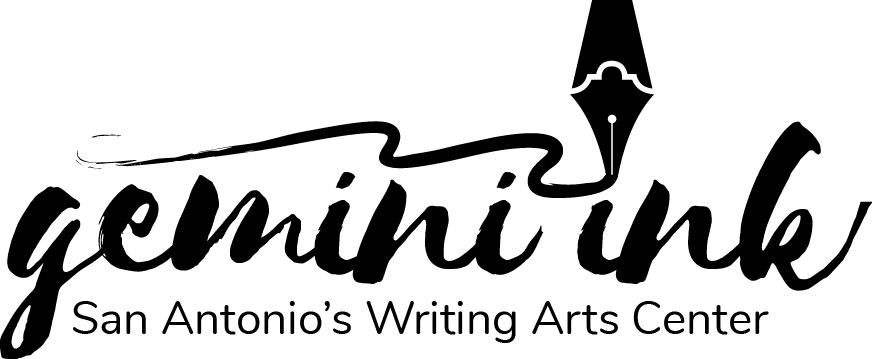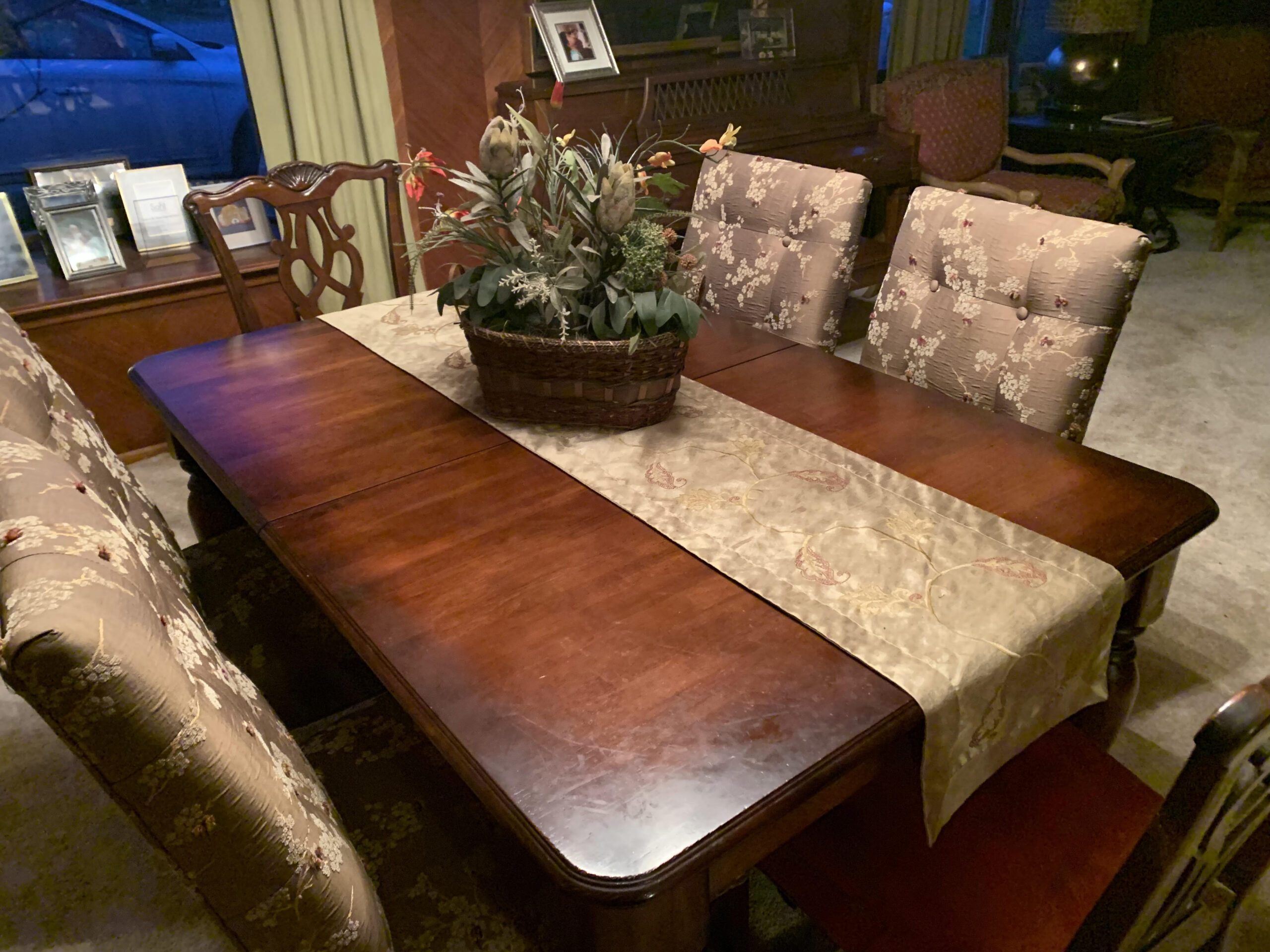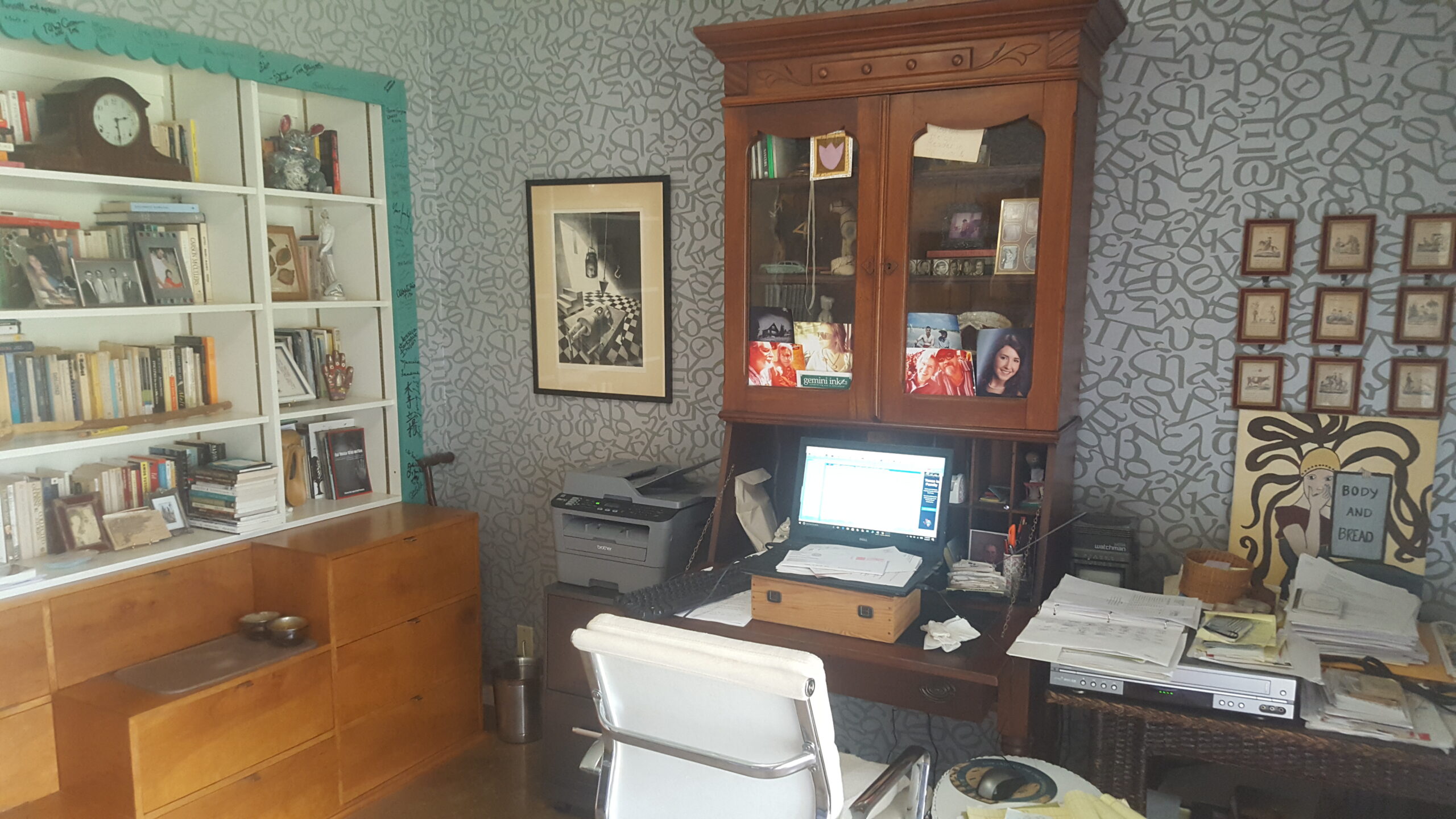The Writer’s Desk features the desks and writing practices of Gemini Ink faculty, visiting authors, teaching artists, volunteers, students, interns, staff, partners and more. Receive new posts in your inbox by subscribing to our newsletter at bit.ly/geminiinknewsletter.
Join Jonathan Fletcher on Thursdays, April 4, 11, 18 & 25, 2024, 6:30-8:30pm CST, In person at Gemini Ink for his workshop: Poetry for Beginners with Jonathan Fletcher. In this four-week class, we will review the history of poetry, study contemporary poets and their craft, and review different poetic forms, including prose, lists, lyrical and narrative, and more.
Gemini Ink is so excited to have you teaching a poetry course with us! We could not be more excited to hear about your writing and teaching style and how it lends itself in the course.
Describe your first writing desk. How is it different (or not) from your current writing desk?
My name is Jonathan Fletcher, and I am originally from San Antonio, Texas. Though a poet by education and training (I recently graduated with a Master of Fine Arts in Creative Writing from Columbia University School of the Arts), I have also had flash fiction and a short story published. Though I’ve had around seventy individual pieces of creative work published, I’ve also been rejected over 100 times (thanks to Submittable for keeping track!) My first writing desk was a solid oak executive roll-top desk. I did a lot of homework on that desk. Not sure what happened to it.
What is your favorite place to write?
My favorite place to write is my dining room because the windows are big, so I’m able to write in natural light, even if minimally aided by artificial light.
What writing habit do you have now that you wish you started earlier?
I wish I had gotten into the practice of writing every day. Though I’ve recently been in the zone with my poetry, writing about a poem a day, I think writing daily is a good practice, whether or not one feels inspired and especially if one doesn’t. Some of the best pieces I’ve written have come out of scribbles and notes. For a beginning writer, I think it’s important to dispel the notion that only inspiration can generate strong writing. Often, it’s precisely those moments in which a writer harbors no expectations that an exercise will lead to something great (yet proceeds writing nonetheless) that the greatest moments of revelation occur.
What is the piece of writing advice that you value most?
Though this probably applies most directly to poetry, a mentor once told me that a carefully chosen noun can often go further or do much more than a string of weaker adjectives.
What is the biggest misconception about being a writer?
To me, the biggest misconception about being a writer is that only some people can do it. Granted, I’m not suggesting there’s not natural ability or linguistic insight, but that only takes you so far, and I honestly think it’s overrated. The best writers I personally know are actually not the most literarily gifted ones but those who regularly develop their craft, write regularly (whether or not they plan to publish), and read regularly. If you can do all three, you are (in my estimation) the real deal.
What is your motto? Does it apply to your own writing?
Whether or not you feel like it, write every day. It’s okay if it’s not great. In fact, first drafts aren’t supposed to be great. You can always revise. What you can’t do, though, is revise a blank page. And yes, I apply this to my own writing.
In your experience, what was the most challenging thing to learn?
To not let ideas overdetermine my poetry (thank you, Shane McCrae!). By that, I mean starting with an idea and seeing that idea from conception to publication instead of letting lines, images, or sounds take me to unexpected places. While it’s not necessarily a bad thing to begin with an idea, you don’t want to let the idea control the poem. Though I still often begin with an idea when I begin writing, I find my greatest moments of insight actually come when I let go and allow the poem to be what it wants to be.
What inspired you to teach this particular workshop?
I strongly believe that poets (whether beginning or seasoned) need to know what’s happening in the literary world today, e.g., which poets are writing, where they’re writing, on what topics they’re writing, in which journals their work is getting published and seen. That’s not to suggest that writers from the past (whether canonical or nearly forgotten) are not valuable or their works not worthy of further study. However, I really do think that if you’re going to write in today’s world (and especially for today’s literary market), you need to know what’s happening today literarily, regardless of genre.
How would you describe your teaching style?
I would describe my teaching style as horizontal. While I’m providing readings and prompts, will share my experiences and knowledge (which are never complete, always in progress), and will guide the discussions, exercises, and feedback, I want my students to know that this is their class, so if there’s a particular poet or movement or an aspect of craft or publishing they want me to explore, I will tailor the class as they need or want (I am always open to feedback). I also hope my students know that I’m not the “expert” when it comes to poetry. In fact, I’m not sure such an expert exists. Though I do have literary knowledge and experience, which I will readily and generously share with my students, I want them to know that other poets may well have different aesthetics and practices, as well as suggestions and recommendations around them. In this sense, no one is “right.” Let no one tell you that poetry is only this or must only be that. Poetry is and can be a lot of things and, to any given poet, may mean a variety of things.

Originally from San Antonio, Texas, Jonathan Fletcher holds a Master of Fine Arts in Creative Writing (Poetry) from Columbia University School of the Arts. He has been published in The Adroit Journal, Arts Alive San Antonio, FlowerSong Press, riverSedge, and The Thing Itself. He has served as a Columbia Artist/Teacher for iHOPE, a specialized school for students with traumatic brain injury, as well as a poetry editor for Exchange, Columbia’s literary magazine forincarcerated writers and artists. Currently, he serves as a Zoeglossia Fellow.



